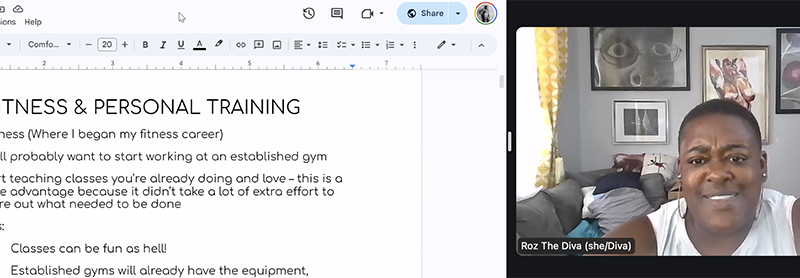[memberonly level=“Group Membership for Businesses of 2-5 individuals, Student, Individual or Solo-Preneur”] Please note that…

How to sell your pole dance business
Selling a business can be a complicated endeavor. Read the tips below to start the process of selling your pole dance business.
Do some soul searching
Business, especially small pole dance business, can be very personal. Make sure you consider all the factors in closing your business first. If you decide that trying you sell your business is a good idea for your business and your individual situation, ask yourself what is most important to you in the sale of your business:
- Do you want or need to sell your business quickly?
- Do you want your business to continue with or without you?
- Do you want to make the most amount of money?
Understanding how you feel about these questions will help guide you in making the decision that is best for you.
Accurately value your business
Make sure you have an accurate valuation of your business. There are many factors to consider in how to value your business. See this post for more information on how to value your business.
Clean up your business
Just like getting rid of clutter and adding a fresh coat of paint can make your home more appealing to buyers, cleaning up your business can also make it more appealing to potential business buyers.
Many pole dance businesses are LLCs, which often means business and personal finances are very closely tied together. Work with a professional accountant to make sure your business books are as separate from your personal ones as possible. This might include separating personal and financial accounts, such as bank accounts, credit cards, and/or loans. It might also include separating business logins from personal.
Take a close look at how you’re running your business. If you haven’t already, write down ALL the processes that you use in your business, such as in an employee handbook. Being able to hand over a manual of how to run your business will make it that much more appealing to a buyer who is looking to continue your business in the future.
Get a contract
Even though you might ultimately sell your business to someone you know, you absolutely, 100% need a contract. In fact, you need a contract for basically everything.
A contract should include information like:
- The terms of the sale, including price and timeline for completion of sale. Perhaps there is a small payment due immediately and then a payment plan over the course of several years.
- What is included in the sale, such as your mailing list or your 40 stage poles.
- What is not included in the sale, such as the warehouse your stage poles are currently in.
- Any support from the seller to the buyer. The buyer might require you to be present in your business for a defined amount of time to assist with the transition.
Never presume anything! If you have questions or aren’t sure, make sure to bring it up and get it written into the contract.
Consider other options
You might just be ready to close your business and not have to work on trying to sell it. You might be more interested in licensing a part of your business. You might even start down this path and decide you don’t want to sell your business or close it—maybe you want to reinvent it in a different way, such as moving entirely virtual. Whatever you choose, make sure it’s right for you.
Finding buyers
Finding qualified buyers for your business can be hard.
Here are some suggestions for how to find buyers within your community. People within your community are more likely to understand the value of your business because they are already customers, staff, or otherwise engaged with your product or service.
- Tell your staff about your intent to sell. One of them might want to take over your business. OR they may be able to offer the support you need to stay in business (if relevant).
- Advertise that your business is for sale in your newsletter and social media.
- Advertise that your business is for sale in local newspapers or message boards.
- Advertise that your business is for sale in online groups relevant to your industry.
Selling your business to someone you don’t know or who isn’t already in your industry or community can be hard. Most services that broker businesses focus on larger small businesses with revenues exceeding $250K.
If you are trying to sell your business, remember to be tenacious and to look at your business with the critical eye of an investor. Ask for help and hire professionals to make sure you are getting the best valuation and the best deal (price and terms) for your business sale.



